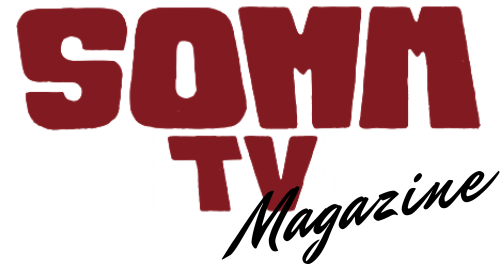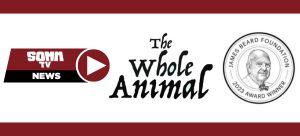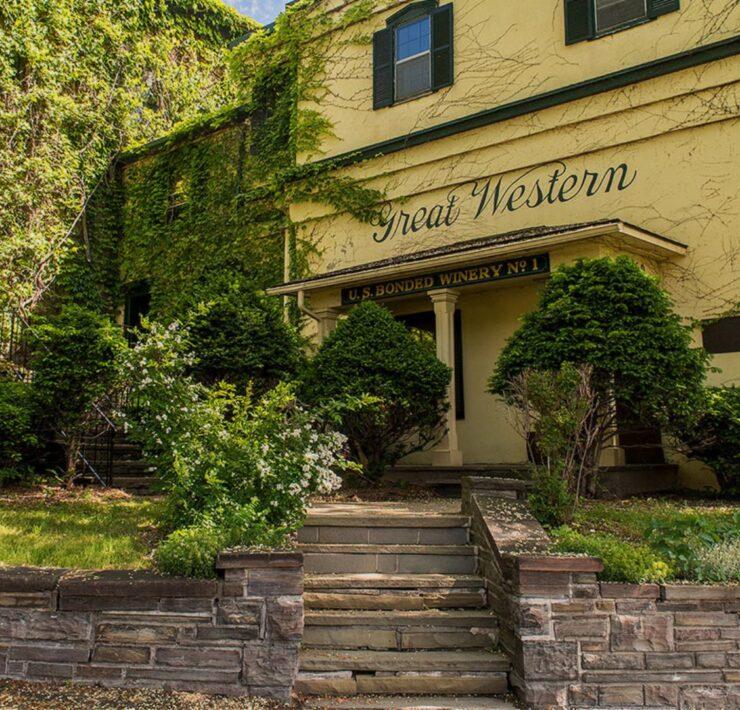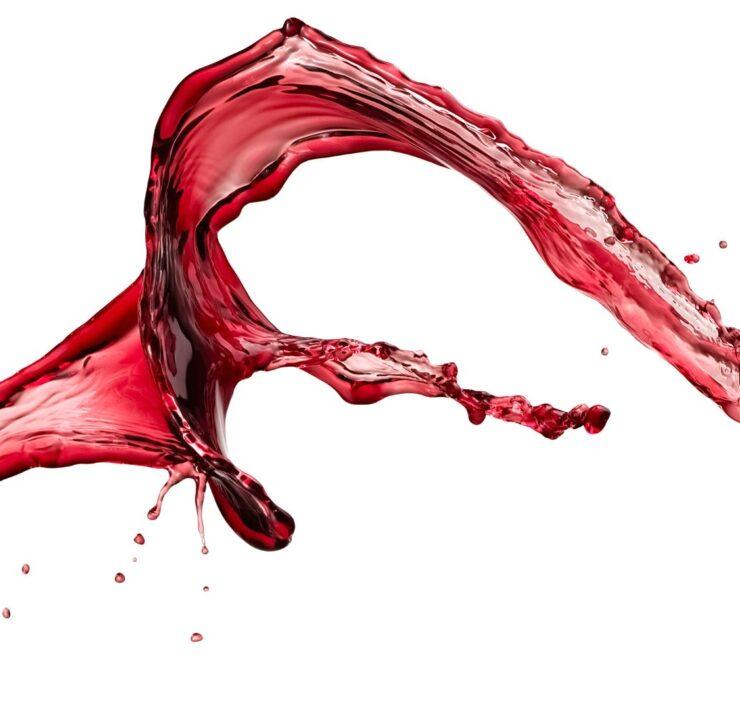The Virginia wine region has a bright future despite its dark past. Having lived in the state my whole life in three of its cities, I’ve seen firsthand the good and the bad. There’s much to discuss, particularly as Virginia has its moment among oenophiles; we need to address how we got here and who was involved.
The state’s wine quality has increased dramatically in recent decades, with limited bottles finally showing up outside state lines on shelves and restaurant lists across the country. However, it’s taken centuries to get to this point. More poignantly, it has taken centuries of healing to acknowledge the contribution of enslaved people. That’s been the case my whole life.
I was well acquainted with historical figures like Thomas Jefferson, Robert E. Lee, and Stonewall Jackson in public school. However, we spent very little time learning about the enslaved people who were the workforces leading to their success. In fact, Martin Luther King Day was diluted into “Lee, Jackson, King Day” in Virginia until 2000. Then, decision makers split the holiday into two days, with MLK Day on the third Monday of January and Lee-Jackson Day on the preceding Friday. Lee-Jackson Day was eventually eliminated in 2020 following a national racial reckoning that, in Virginia, put a spotlight on the celebration of two slave owners.
My history lessons always glorified a select few, primarily white men, but at home, I received a different education. My father always ensured we understood Black Americans’ contributions to the state and the country. Figures like Maggie L. Walker, who grew up in my hometown of Richmond and became the first Black woman to found a bank in the United States.
Likewise, my entry into the wine industry included Black wine professionals and Black-owned wines. However, these moments were brief as I continued my wine education, which often started and ended with European settlers coming and producing the wine we know today. That’s as true here in Virginia as anywhere else, leading to a dual education that is often an additional burden for Black wine professionals.
A Brief History of Virginia Wine
Virginia’s wine history predates America’s independence. Virginia was the first American colony, established in 1607 by settlers who brought with them a desire for winemaking in the New World. The enthusiasm dissolved after giving native vines a chance and determining the wines were not palatable.
The Virginia wine industry saw another attempted kick-start in the 1700s when Thomas Jefferson brought Vitis vinifera vines home following a European trip. His hope of establishing Virginia as a player in the wine industry quickly died, however, when those vines succumbed to phylloxera.
Despite scientists discovering a defensive fix to the invasive louse problem in the late 1800s by grafting European vines to American rootstock, Prohibition and the Great Depression all but destroyed the alcohol industry across the country, including Virginia.
The modern birth of Virginia wine was in the 1960s and 1970s, spawning only a half-century of uninterrupted winemaking. While it’s a mere embryo in comparison to its global counterparts, many in the state embrace its convoluted wine history, including the role of enslaved people and their silent contributions to the area’s winemaking history.
Virginia’s Complicated Racial Past
Growing up, I quickly learned of many figures inside and outside Virginia that no one told me about in my history courses. It was frustrating to learn that so many of the “achievements” boasted in text books were inspired by, or stolen from, Black labor.
The story of Virginian settlers and Jefferson almost always ignored the labor critical to Virginia wine at that time. For example, in 1773, Thomas Jefferson gave Italian viticulturist Filippo Mazzei 2,000 acres in order to plant European vines requiring enslaved African-American labor.
“The late 18th and early 19th centuries are understudied for Black American contributions in this space. There’s a tendency to dismiss the contributions of enslaved people because of all the stereotypes of enslavement and who were enslaved,” says Niya Bates, a public historian and former director of African-American history at the Thomas Jefferson Foundation. We attended UVA (also known as Jefferson’s Academical Village) around the same time and experienced this idea firsthand. Seeing her stay in the area and persist in fighting against these narratives is inspiring and amazing.
Bates adds, “It connects with the very ideas that Jefferson and others articulate about white supremacy. Because they positioned themselves at the top of the spectrum, the contributions of those enslaved people, who were fruit growers, brewers and distillers, are lost.”

As the truth about Virginia’s winemaking history reveals itself, Bates and other historians work to bring these contributions to life. Efforts from Jefferson’s enslaved people like James Hemings, his brother Peter Hemings, and Ursula Granger Hughes, who were critical to the food and wine served at the former president’s estate, Monticello. Additionally, Bates’ own grandfather was a winemaker, producing dandelion and grape wines in his yard.
These stories underscore the immense impact Black winemakers made long before they could have had those titles.
“There would not be 90% of what we enjoy without the ingenuity and intelligence of enslaved people. The knowledge they brought [from Africa] informed what they do here,” says Leslie Scott-Jones, an education and public programs curator for the Jefferson School African-American Heritage Center. I was fortunate to meet Leslie during a wine trip to Charlottesville with The Veraison Project in June 2023. Yet again, I came face-to-face with stories no one told me previously about the area, even though I spent four years living there.
The school was created in 1865 to educate formerly enslaved individuals after the abolition of slavery. Today, it continues to tell the stories to encourage a deeper understanding of African-American history and culture. From my experience, it does so successfully.
After enslavement ended, Black Americans continued to try and use their agricultural skills, this time for personal gain. Unfortunately, that was met with resistance all over the country, but especially in Virginia. For example, racial covenants allowed sellers of property to ban buyers based on their race. That means Black Americans with skills in growing grapes or making wine could not own the land to do that work.
Nevertheless, some were able to make their way despite these restrictions. The most notable and inspiring example is John June Lewis. Lewis was a World War I veteran and farmer born in 1894. In 1933, Lewis planted his vineyard and began selling wine in 1937, just four years after prohibition. He opened Woburn Winery in Clarksville, Virginia, the first Black-owned winery in the U.S. The winery remained open until his passing in 1974.
I first learned about Lewis during that same Charlottesville trip and have read as much as possible about him. Unfortunately, there isn’t much recorded about his life. But I know that winemakers like Lewis paved the way for the diversity we see in Virginia winemaking today.
A Bright Future for Virginia’s Black Winemakers
Since the 1970s, Virginia has blossomed from a region with a few wineries to more than 320 across nine American Viticultural Areas (AVAs), with the newest joining in 2021.
“The real Renaissance of Virginia started in the 70s with six wineries, growing hybrids then vinifera fruit,” says Annette Boyd, director of the Virginia Wine Board’s marketing office. The first six wineries for Virginia include Barboursville Vineyards, Shenandoah Vineyards, Farfelu, Piedmont Vineyards, Mountain Cove, and Meredyth Vineyards.
Just like the pioneers in the early days, a few Black winemakers are making significant contributions. Kendell Anderson is the winemaker at my favorite winery, The Winery at Bull Run in Northern Virginia’s Middleburg AVA. The award-winning winery boasts several varieties from vinifera grapes like Cabernet Franc, native varieties like Norton, and hybrids like Vidal Blanc. For Anderson, this is his way of putting his community on the map.

“After making Bull Run more efficient for ourselves, I would love to be a community incubator, producing Black-owned and Black-made wine”, says Anderson, who was once under the mentorship of Preston Thomas, winemaker of Stone Tower Winery.
It’s encouraging to see the community look out for each other. Mentorship is one way the Virginia wine community supports itself, particularly the Black wine community. But, broadly speaking, the “winemaker” term is becoming more flexible, inviting more inclusion.
“Once it leaves the winery, sommeliers, chefs, and others are giving the wine context to the consumer. Media, social influencers and others ‘make the wine’ look and feel different, as well,” says Reggie Leonard. Leonard founded Oenoverse, in partnership with Blenheim Vineyards, to amplify and bring underrepresented voices to the industry.
Thanks to an incubator program run by Commonwealth Crush, Leonard and Richmond wine professional Lance Lemon are producing a wine this year. Lance also attended UVA with me, and I got to know Reggie through him.
“There’s this collaboration of conversation and communities where we’re all figuring out what works where. That’s where we are as a region, but also as Black winemakers,” Leonard continues. “We will push each other and the industry by being in community with each other and supporting each other. The more people there are who make wine in Virginia, the more we will see what the state is capable of producing.”
Organizations like Oenoverse and Commonwealth Crush are the innovations that happen when you bring diverse voices and representation into the fold. It’s inspiring to see what Reggie is doing, and I hope the stories I tell can have a similar impact.

Virginia Wine: Looking Ahead
I can’t wait to see how the contributions of diverse voices like Anderson and Leonard, the increasing quality of the wine, or the innovations in the industry play out in the future. And I look forward to watching it all happen as a member of the wine community, the Black community, and a resident Virginian.
“What excites me the most is the caliber of wines coming out; it’s worth getting excited about. If we’re producing this level of wine 50 years in, what will we do next?” says Boyd. “But, you only get to do this [harvest] once a year. Five decades in, our winemakers have done this maybe 30 or 40 times. That pioneering spirit from our history still lives here, and it’s exciting to be a part of it.”
There is so much history, known and unknown, that the state can use in its next chapter. Overcoming the past’s complicated systems and limitations can unlock the future’s exciting innovations.
“There’s something those [enslaved] people, and how they lived their lives, have to teach us. It becomes about Sankofa,” says Scott-Jones. Sankofa is a Ghanaian word in the Twi language, meaning “remembering the past to make positive progress in the future.”
With contributions from historians like Bates and Scott-Jones, organizations are helping clarify the history of enslaved labor in the state. These actions reveal the darkness of enslavement and the continued efforts to restrict Black Americans in the country.
That said, the dark racial past not only produces scars that need healing. It also brings a spirit of perseverance and innovation. With the work of the industry’s enslaved people coming to life, winemakers like Anderson and Leonard forge their own paths, driving Virginia wine forward.









